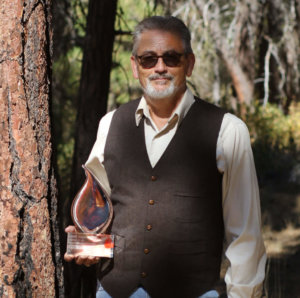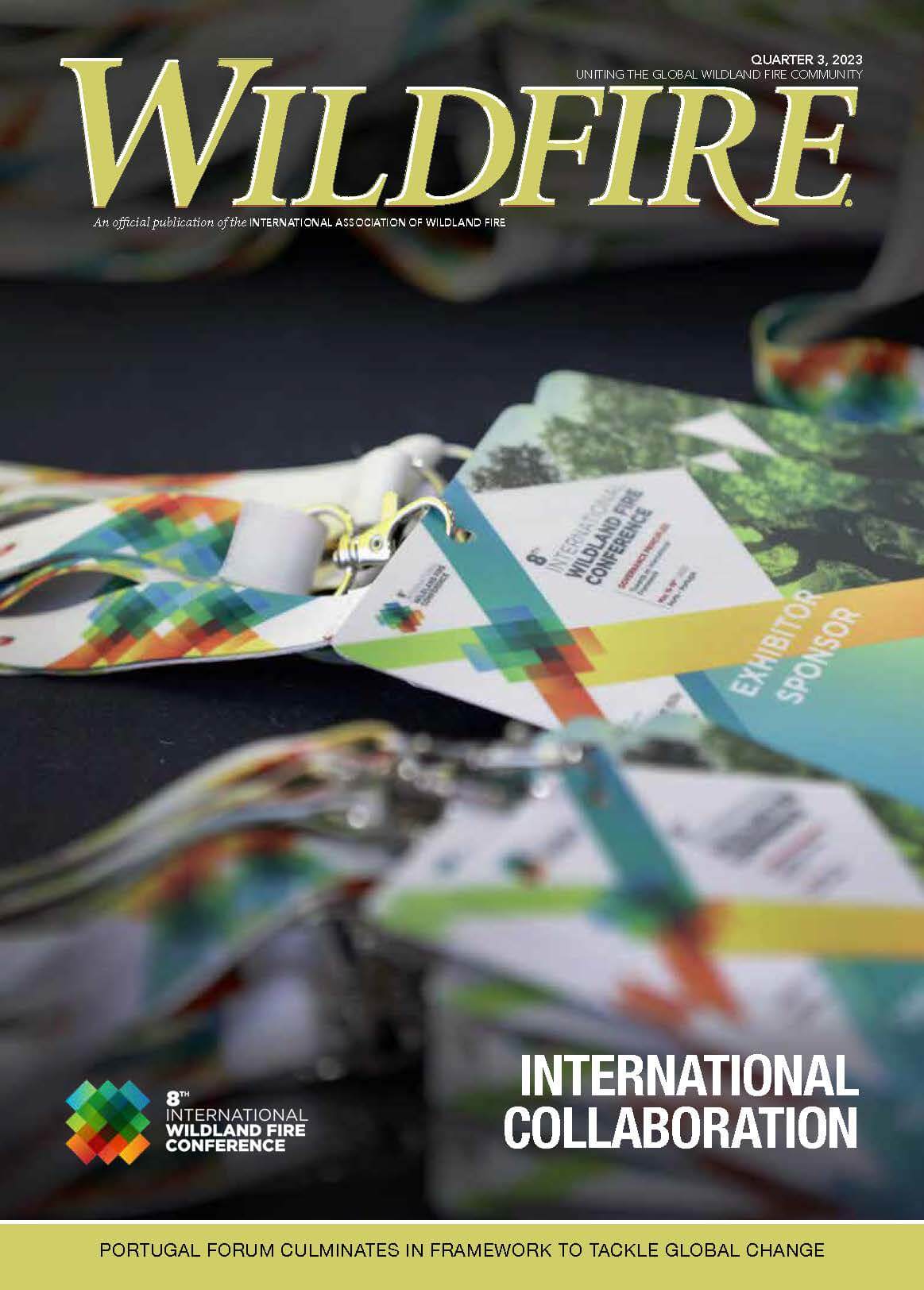IAWF 2020 Award Recipients
The International Association of Wildland Fire is pleased to share the 2020 Award Recipients. Each year the IAWF accepts nominations for these prestigious awards. The awards are generally presented at one of our conferences, however, due to Covid-19, this year we have planned virtual award ceremonies to honor the recipients.
The Call for Nominations for the 2021 Awards is now open through December 2nd. Learn more and nominate on our webpage. https://www.iawfonline.org/awards/
Congratulations to all of the 2020 Award Recipients.
Ember Award for Excellence in Wildland Fire Science – Dr. David Martell
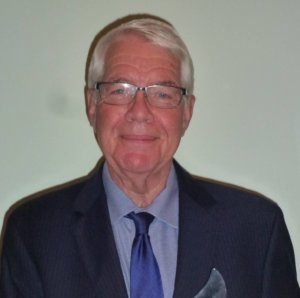
For 45 years Dr. David Martell has been a passionate and dedicated member of the wildland fire science and management community. Dr. Martell is recognized as a synergistic force for his work in operations research, renewable resource management and forest fire science, and for his contributions to the development of innovative fire occurrence prediction modelling. One of Dr. Martell’s seminal research projects involved the development of an initial attack simulation model which strongly influenced the Province of Ontario’s decision to expand their air tanker fleet. This decision led to the development of the Level of Protection Analysis System, which allows the structured assessment of the outcomes and costs associated with alternative fire management policies, budgets, and suppression resource mixes, and has been adapted for use by several Canadian fire management agencies. Dr. Martell has had a strong influence on the development of fire leaders and managers across Canada because he dedicated time to understanding their operational point of view, integrating academic and operational perspectives, and absorbing the real application of fire management. In addition to his research and modelling accomplishments, Dr. Martell is an outstanding collaborator, professor, and student mentor. Dr. Martell established the Fire Management Systems Laboratory in the Faculty of Forestry (now the Institute of Forestry and Conservation in the John H. Daniels Faculty of Architecture, Landscape and Design) at the University of Toronto where he developed approaches to solving regional, national, and international management problems. Under Dr. Martell’s guidance dozens of students have received graduate degrees through this laboratory and many now have leadership roles in fire management agencies. Dr. Martell has authored or co-authored more than 75 peer-reviewed papers and dedicates time as an Editor and Member to a number of prestigious national and international organizations.
Firebreak Award for Excellence in Wildland Fire Management – Tim Sexton
Tim Sexton – 2020 Firebreak Award RecipientTim started his career as a seasonal firefighter on the Shasta-Trinity NF. Early in his career Tim held positions on various National Forests, the Bureau of Land Management, and National Park System, a few of which are highlighted below.
Tim was also the first Superintendent of the Redmond Hotshot Crew, where he positively influenced numerous individuals who later went on to esteemed careers in resource and fire management. Tim then became a District FMO on the Winema NF, while obtaining a master’s degree in Fire Ecology from Oregon State University.
As the Deputy Regional FMO for the Intermountain Region of the National Park Service Tim’s attitude and perspective of “fire use” began to evolve. With the support of mentors and leaders he began to understand the need for beneficial wildfire on the land and quickly became an advocate himself. After a year as Deputy Regional FMO Tim took on a new position as a Fire Ecologist for the National Park System. In this position, Tim showcased his deep compassion and empathy for folks in the fire community by unpopularly advocating for the crewmembers who were implementing the prescribed burn that escaped and became the Cerro Grande Fire. Many of those individuals have said that Tim’s unwavering support was critical in the days after the fire when they felt vilified.
Tim returned to the USFS as the national Fire Use Program Manager where he became a vocal proponent of the use of wildland and prescribed fire. Due to Tim’s leadership in this area he was selected as the lead in an interagency effort to update the federal wildfire management policy. This update was a major change in how federal land management agencies managed natural occurring wildland fires and removed many barriers to the flexibility needed in developing objectives and strategies to manage these fires.
Currently, Tim is the Program Manager for the Interagency Fire Program Management RD&A program. He has been instrumental in improving the Wildfire Decision Support System by being responsive to users on needed updates for the next generation of the database. He and his staff provide critical tools to support Agency Administrators, fire managers, and incident command teams in managing wildland fires.
Firebreak Award for Excellence in Wildland Fire Management – Neil Cooper
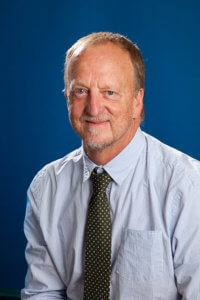
Neil Cooper has made a defining contribution to modern fire management in the Australian Capital Territory (ACT) and his influence extends across the globe. Neil commenced firefighting in 1983 with the ACT Bushfire Service and has remained actively involved. Over the past 36 years, he has held every position from basic firefighter through Group Captain within the ACT Rural Fire Service. In 1999, Neil was appointed manager of all fire related activities within ACT Forests and in 2006 he was appointed Director of the newly formed ACT Fire Management Unit (FMU). The FMU was responsible for managing fire across 80% of the ACT including a large wildland-urban interface, fire-prone nature reserves within the urban area and steep, rugged alpine terrain of the Territory’s water catchment. Neil developed a world class ACT fire program based on the latest science, technology, training and safety knowledge.
Neil is a member of the National Council of Australasian Fire and Emergency Service Authorities Council. As a member of the board of directors he represents the interests of all land management agencies from across Australia and New Zealand in their fire management functions within the Australasia’s industry peak body. Neil is also Chair of the Forest Fire Management Group which reports to the Council of Australian Governments, the peak intergovernmental forum in Australia.
Neil is a founding member of the National Burning Project Executive Committee – a multi-million dollar project that delivers operational outcomes that provide consistency for the fire industry across Australia. He is also the ACT representative on the Forest and Forest Products Committee. Neil has twice represented Australia at the United Nations Committee on Forestry, and currently represents Australia at the North American Forest Fire Working Group meetings. Neil has also contributed to international fire-fighting deployments to North America in 2006 as Branch Director, in 2008 as Liaison Officer, and in 2017 as International Liaison Officer.
Early Career Award in Fire Science – Dr. Alex Filkov
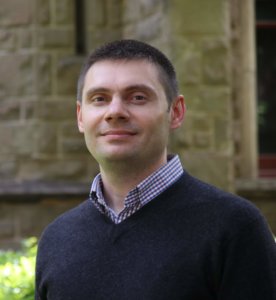
Dr. Alexander Filkov’s research program and expertise in fire behavior is recognized at a national and international level. His work covers a broad range of fire behaviour topics including research on the ignition and combustion of fuels, the spread of wildfire and transition mechanisms to the Wildland Urban Interface, and the performance of structural materials under different fire conditions. His international reputation and broad network of peers have allowed Dr. Filkov to organise and participate in several large field experiments on forest and grass fires in Russia, the USA, and Australia.
Dr. Filkov’s early research at Tomsk State University in Russia was focused on the development of a new deterministic and probabilistic model to predict forest, grass and peat fire hazards. His research also focused on the field and laboratory study of forest and grass fires and their impact on wooden structures. Dr. Filkov’s collaborations with the laboratory of the National Center of Scientific Research in France has resulted in some major findings in understanding thermal properties and smoldering of peat. He has also collaborated with Worcester Polytechnic University (USA) and the University of Edinburg (UK) to conduct a series of pioneering experiments studying firebrand production and spotting mechanisms in wildfires. Dr. Filkov also studied the probability of fuel bed ignition by firebrands in laboratory experiments, resulting in the development of a mathematical model for the transport of firebrands from the combustion zone. Since Dr. Filkov’s arrival in Australia in 2016, his work has focused on understanding the mechanisms that drive dynamic behaviour in wildland and structural fires.
Dr. Filkov has mentored numerous graduate students, demonstrating his commitment to future generations of wildland fire researchers. He is extremely passionate about wildland fire research and has demonstrated his commitment to the field. He has strong growth potential and will continue to contribute greatly to the wildland fire community and to wildland fire science.
Early Career Award in Fire Operations – Nolan Buckingham
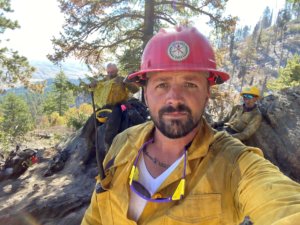
Mr. Nolan Buckingham currently serves as crew superintendent of the first of its kind Kootenai National Forest OU3 Asbestos Wildland Fire Suppression Module. This 10-person module, established by Mr. Buckingham, is responsible for suppressing wildfires and mitigating wildfire hazards in the 30,000-acre Operable Unit 3 (OU3) of the Libby Superfund site. In addition to the typical challenges associated with wildland firefighting in the steep terrain of the Kootenai National Forest, a new level of complexity is added by the Superfund site. The tree bark, duff, and soil in this area has documented presence of Libby Amphibole Asbestos, a well-known toxic substance that requires the use of Positive Air Pressure Respirators (PAPRs) when suppressing wildfires in the area.
Leading the nation’s first ever Hazmat wildland firefighting module includes unique challenges, such as ensuring safety of the crewmembers, which Nolan effectively managed. Nolan ensured his crew correctly wore PPE and were decontaminated following assignment in the Superfund area. During the 2018 and 2019 summer fire seasons Nolan’s crew experienced zero injuries, a testament to his leadership and commitment to safety. Another testament to Nolan’s leadership is his crew retention rate. Despite the challenging and frequently uncomfortable nature of fighting fire in a hazmat area, over half of Nolan’s crew from 2018 returned in 2019.
With the Kootenai hazmat module as a pilot, Nolan and his crewmembers have created a workable model for suppression of wildfires in Superfund and other hazardous locations across the country. Similar adherence to safety guidelines, training, and replicable procedures established and perfected by Nolan will allow other similarly situated Forest Service districts to safely suppress and mitigate wildfires in hazmat areas.
When not serving as crew superintendent of the OU3 module Mr. Buckingham serves as a crew boss and prescribed burn boss for Chloeta during the fall and spring prescribed burn seasons in the southeastern and Midwestern United States, responsible for a portfolio of prescribed burn projects exceeding 15,000 acres annually. Nolan is also a wildland fire instructor for both Chloeta and Colorado Firecamp.
